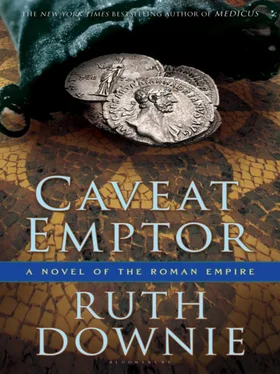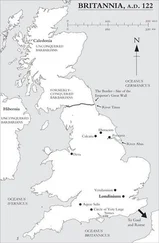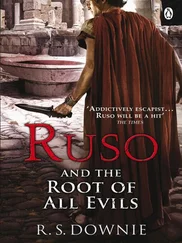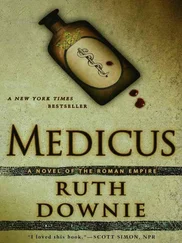Ruth Downie - Caveat emptor
Здесь есть возможность читать онлайн «Ruth Downie - Caveat emptor» весь текст электронной книги совершенно бесплатно (целиком полную версию без сокращений). В некоторых случаях можно слушать аудио, скачать через торрент в формате fb2 и присутствует краткое содержание. Жанр: Исторический детектив, на английском языке. Описание произведения, (предисловие) а так же отзывы посетителей доступны на портале библиотеки ЛибКат.
- Название:Caveat emptor
- Автор:
- Жанр:
- Год:неизвестен
- ISBN:нет данных
- Рейтинг книги:3 / 5. Голосов: 1
-
Избранное:Добавить в избранное
- Отзывы:
-
Ваша оценка:
- 60
- 1
- 2
- 3
- 4
- 5
Caveat emptor: краткое содержание, описание и аннотация
Предлагаем к чтению аннотацию, описание, краткое содержание или предисловие (зависит от того, что написал сам автор книги «Caveat emptor»). Если вы не нашли необходимую информацию о книге — напишите в комментариях, мы постараемся отыскать её.
Caveat emptor — читать онлайн бесплатно полную книгу (весь текст) целиком
Ниже представлен текст книги, разбитый по страницам. Система сохранения места последней прочитанной страницы, позволяет с удобством читать онлайн бесплатно книгу «Caveat emptor», без необходимости каждый раз заново искать на чём Вы остановились. Поставьте закладку, и сможете в любой момент перейти на страницу, на которой закончили чтение.
Интервал:
Закладка:
Be careful how much help you promise.
Helping a woman in labor was only natural. Supporting a woman who had been bereaved and wronged-especially by the Catuvellauni-was a good thing to do. But should she have waved Camma and her baby good-bye at the gates of Londinium with good wishes and a blessing and gone back to minding her own business?
You can’t fight her battles for her, Tilla.
He was wrong: She had not wanted to get involved. She had wanted to believe that Julius Asper was faithless and that Camma would have a better life without him. Instead, she had somehow ended up demanding justice for him in public and helping to curse the local magistrate.
Once the word spread about Camma and the pyre, it would be even harder to find someone to take on the job of housekeeper. Perhaps a message could be sent to the Iceni about the baby. Maybe if they understood how desperate their princess was, they would relent and allow her back.
In the meantime, the neighbors here were unlikely to be much help. The workshop next door was owned by a pair of elderly bronzesmiths. On the other side, the woman had grudgingly given her a light when she could not find the flint yesterday and insisted on telling her that if anything was wrong next door, it was not their fault. “You tell that woman if she’s got any complaints, it’s nothing to do with us.”
“What sort of complaints?”
“It’s not enough we have to put up with the tax man and his fancy woman,” the neighbor had said, ramming Tilla’s proffered stick of kindling into the fire and waiting for it to catch. “You should have heard the goings-on in there the other night. I never heard anything like it. That other one-what’s her name?”
“Grata?” Tilla suggested.
“Voice like a fishwife. Language. They even woke Father up.”
“She was all alone and there were frightening people outside.”
The woman ignored her and leaned across the hearth to shout at a pile of blankets in the corner, “Didn’t they, Father?”
The blankets shifted and a white head emerged. “What?”
“All that shouting next door. They woke you up.”
“What’s she doing here?”
“Nothing. She’s just leaving.”
And that was before Camma had tried to join Asper in the next world. It seemed that even if her mind were restored to order, an incomer who had betrayed a local husband and allied herself with a tax collector believed to be a thief would be at the wrong end of any queue for help.
43
Ruso knew that the tongue of the Britons boasted a rich vocabulary of insult. He was unable to translate much of it, since his wife used it chiefly when she was too exasperated to continue in Latin, but he recognized it being shouted across Verulamium’s Council chamber as the door guards moved aside to let him enter. His arrival went unnoticed by the thirty or forty quarreling men within, who between them were wearing more togas than he had seen together for years. It struck him that, unusually for the Britons, there was not a woman in sight.
Ruso lingered just inside the entrance, letting the din wash over him while he waited for a suitable moment to present himself. The air smelled of hair oil and musty wool. The plain walls around him were adorned with a series of engraved bronze plaques crammed with what he supposed were the rules of the Council: presumably the constitution dictated by Rome when the town had been granted permission to govern itself. It was an illustration of how far these remote island peoples had come. Or been led by the nose. He was not sure which.
A pale clerk was standing to one side, stylus poised to note any decisions. It looked as though he would be waiting a long time.
Ruso managed to catch odd phrases about the honor of the magistrates, the honor of the town, and something to do with “when the emperor comes.” Finally, “You were there when it was decided!” was followed by a familiar voice shouting, “Against my advice!”
A couple of councillors sat down in disgust, allowing him to see Caratius seated in a metal-framed chair at the front. His expression was grim. Gallonius, less exposed and more authoritative than he had been at the baths, rose from a seat beside him and clambered up onto a small podium. His rich voice was impressive but his words were drowned by the furore, and under the circumstances a toga had not been the best choice of garment. In fact, a toga was not the best garment for anything that Ruso could immediately think of, and Gallonius was having trouble keeping his under control. Every time he forgot it and raised both hands to emphasise his point, the heavy wool slid over his arm toward the floor and he had to grab it to maintain some dignity. Someone had attached it to his elegant cream tunic with a secret pin, but the pin was now exposed as the fulcrum of a lopsided tangle of fabric hanging off one shoulder. As he tried to wrench it back into position, someone shouted, “Just take it off, man! You’re only a butcher!”
So Gallonius must be the councillor whose country estate supplied overpriced meat to the mansio. He raised both arms again and bellowed, “Silence!” but nobody took any notice.
“The question is,” insisted someone else above the confusion, “What are we going to do?”
“Silence!” shouted Caratius, leaping out of his chair to intervene at last. “This is-”
His voice was drowned beneath a cacophony of shouts and jeers. He gesticulated to the clerk, who reached behind the podium and produced a horn. Finally a blast of noise cut through the babble. “I insist we wait for the procurator’s man,” declared Caratius.
“Why?” someone demanded, adding something that sounded like, “What does he know that we don’t?”
Ruso, who had no idea, took a deep breath and stepped forward.
Moments later, he was regretting it. Under the guise of introducing him, Caratius had seized him by the arm, led him up onto the podium, and abandoned him there with the whispered words, “Tell them it wasn’t me!”
Ruso looked around the hall. He was surrounded by Britons whose ancestors must have been barbarian chiefs and druids and rabble-rousing warriors. Now they were arrayed on their benches, many of them draped in the garb of Roman citizens, all watching him and waiting for him to speak on behalf of the Imperial procurator. Not only that, but Caratius was demanding to be defended.
He cleared his throat. The sound died away into an unnerving silence. Inside his head, a small voice urged him to say… something. Gods above, he had heard enough speeches! Why could he not remember anything from any of them?
Caratius was sitting very upright in his seat. Gallonius was standing with his arms held wide while a slave struggled to restore some dignity to his toga. He recognized one or two faces from yesterday’s trip to the bathhouse.
His mouth was dry.
Say something.
“Speak in Latin!” urged someone at the back who had misunderstood the problem.
Dias was standing in the open doorway, listening.
What would Cicero do?
Perhaps he should start by declaring how venerable and wise this assembly was and how, despite being inexperienced and feeling daunted by the magnitude of the task that lay before him…
Perhaps not. Gazing out at the expectant faces of the Catuvellauni, Ruso had the feeling that a man who tried that sort of smooth talking here would very soon regret it. He was conscious of an awkward shuffling among his audience: of sidelong glances and whispers. Say something.
He opened his mouth.
Even as the words came out, he knew that “If only Julius Caesar could see this” was not the most tactful way to start. There was a tense silence. Then someone at the back called out, “We’d show him!”
Читать дальшеИнтервал:
Закладка:
Похожие книги на «Caveat emptor»
Представляем Вашему вниманию похожие книги на «Caveat emptor» списком для выбора. Мы отобрали схожую по названию и смыслу литературу в надежде предоставить читателям больше вариантов отыскать новые, интересные, ещё непрочитанные произведения.
Обсуждение, отзывы о книге «Caveat emptor» и просто собственные мнения читателей. Оставьте ваши комментарии, напишите, что Вы думаете о произведении, его смысле или главных героях. Укажите что конкретно понравилось, а что нет, и почему Вы так считаете.












